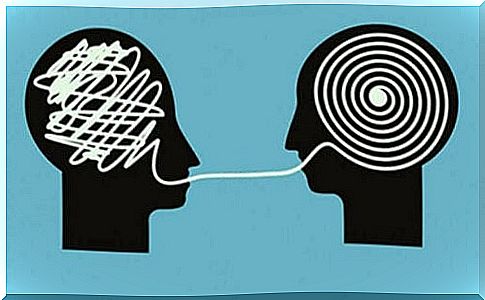To Correct A Person Who Has A Wrong Opinion

Finding a suitable (and respectful) way to correct a person who has a misconception is something that everyone should learn to do. After all, there are large amounts of fake news in various media everywhere, which makes it very easy to take at least some of them as truth. What may be the most difficult and which you should fight against is the disease that afflicts so many people in the world: the need to always be right.
Realizing that everyone can make mistakes is important. This is an exercise in humility because it is true. But if it is difficult for you to see mistakes as something human, you will find it harder to convince others of their misconceptions. So how can you do that without it leading to a conflict? Is there any strategy for how to make a person aware that they have a misconception about something without it creating tensions and negative emotions that also escalate?
You could say that it is about pace, but it actually goes far beyond knowing how to correct another person in the right way. You have to do it in an intelligent way. This is because at the same time you must be prepared to realize the possibility that you are the one who is wrong.
After all, it is about knowing how to build the foundation for a dialogue for respectful and truth-seeking communication. One where different views are given space and where the arguments are kept in a civilized tone.

Strategies for correcting a person who has a misconception
Everyone wants to be right. Defending one’s own truth is a common human behavior. Most people stick to their ideas like a sail to the mast. Because many people see mistakes as a weakness. Thus, not everyone feels comfortable with failing an argument, or hearing that they are wrong.
Have you ever felt the need to correct a person who has a misconception? It is quite common for people to be very close to you. It can often happen when two people have gone through the same experience, but they remember it in different ways – in other words, it is often perceived here that the other has “false memories” of what actually happened.
It could be your partner, father or best friend who is confused about a particular date or event. Therefore, try to tell them that it happened on a different date or way than what they reproduce. If you do not go the right way here, there is a risk that it will lead to a conflict.
Another example might be a situation in your workplace. Have you ever had to correct something your colleague said because it was not true or correct?
Everyone has been through this kind of situation. And admit it, you would have liked to have handled them with greater success. So keep reading to find out some ways that can help you succeed in this next time.
Start with something positive without emphasizing the mistake
When you want to correct a person who has a wrong opinion, you should not start with expressions such as: “What you say is not true”, “It is not completely true” or: “Look here, you are doing it wrong”. Such phrases will only put the person on the defensive right away.
It is a much better method to try to convince the other person and to argue things in an intimate way, and approach this person as positively as possible. For example: “Yes, it’s true that we went to that city, and it’s also true that we stayed in a pretty old hostel. You’re right about that. But your brother was not on that trip because he was still working in… ”
Think about your choice of tone mode when correcting a person with a misconception
When you correct someone and point out their mistake or wrong approach, it is quite easy to use, almost instinctively, an authoritarian, ironic or confrontational tone. You must avoid doing this as far as possible.
Secure your arguments with data
When you want to correct a person who has a misconception, you should avoid starting by saying that you are the one who is right. This is because a truth without backing up facts does not matter because there is not enough data to support it. It is like smoke that can easily be exhaled through the window.
To show, without being intrusive, that you are right, you should do so with solid arguments. And to do that, you need to communicate independently and provide detailed, objective information. At the same time, it is important that you listen empathetically so that you can respond correctly.

Be aware that you will not always be able to convince the other person
Yes, you will not always be able to convince another person that he or she is wrong. So when you want to correct a person who has a misconception, keep in mind that some people are simply not interested in seeing things from your point of view. This can be, for example, in some cases as complicated as when a person wants to defend their participation in a cult, or when a person has decided that they are against the use of modern medicine.
There are facts that some people simply cannot understand. And there are insurmountable differences in beliefs and opinions among people with different religions and worldviews. As you can understand, fanaticism and ideological extremism are quite difficult to debate against. Pointing out mistakes in those who protect themselves with prejudices cultivated and nurtured among like-minded people is as complicated as it is tiring.
Acceptance is sometimes the only thing you can offer in this type of situation, and also in other, simpler situations such as those that deal with “false memories”. And even those where your discussion partner absolutely insists on defending his opinion. Remember that you live in a world where each person defends their own point of view.
Try to use calm, intelligent arguments as often as possible. This is the only way you can be successful and determined. So try to just let it be if you are not going anywhere. Because it is always best to withdraw unharmed, and at the lowest emotional cost.









